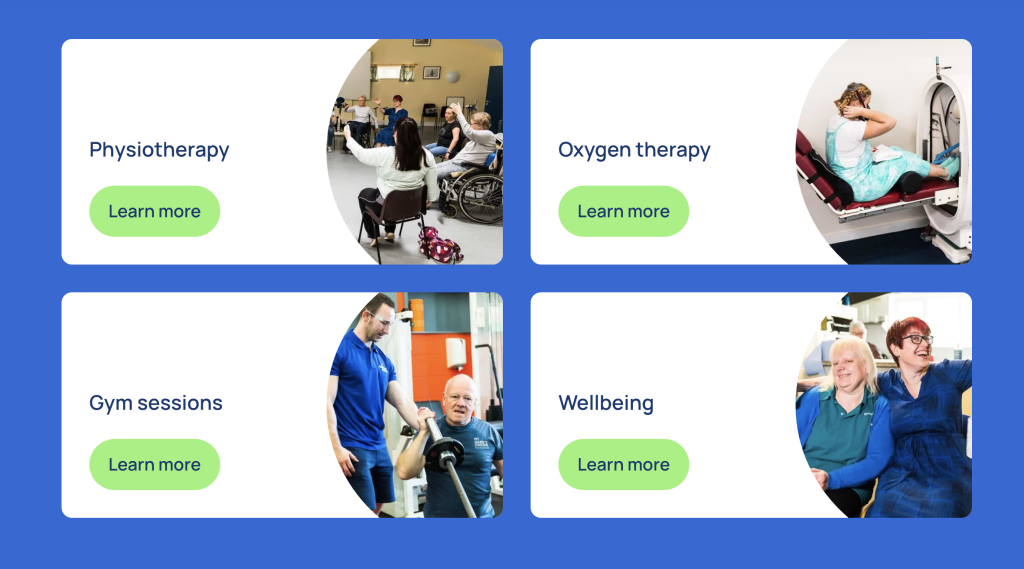Navigating Life with Multiple Sclerosis: A Guide for the Newly Diagnosed

Receiving a diagnosis of Multiple Sclerosis (MS) can be a life-altering experience. It’s normal to feel a mix of emotions—fear, confusion, frustration, and even grief—as you begin to process what this diagnosis means for your future. However, it’s important to know that there is hope, and that living a full and fulfilling life with MS is entirely possible. With the support of a strong healthcare team, lifestyle changes, and a dedicated community like the Samson Centre, you can take control of your condition and live well.
At the Samson Centre, we provide essential services that aim to empower individuals with MS to be proactive about managing their condition. Our goal is to support you, not just with therapies and treatments but with the emotional and practical support needed to live life to the fullest. This guide is designed to give you an understanding of MS and show how the Samson Centre can help you manage your diagnosis, build resilience, and live a life filled with purpose and hope.
1. Understanding Multiple Sclerosis
Multiple Sclerosis (MS) is a chronic neurological condition that affects the central nervous system. The immune system mistakenly attacks the protective sheath (myelin) that surrounds nerve fibres, causing damage that disrupts communication between the brain and the rest of the body. As a result, individuals with MS may experience a wide range of symptoms, including muscle weakness, fatigue, vision problems, numbness, and cognitive difficulties.
It’s important to remember that MS is a highly individualised condition. No two cases are exactly alike, and the disease progresses differently in each person. This unpredictability can feel daunting, but it also means that your experience with MS will be unique to you. Understanding this is the first step towards taking an active role in managing your condition.
At the Samson Centre, we are here to guide you through the early stages of your diagnosis, helping you understand your symptoms and how to manage them effectively.
2. Finding the Right Treatment Plan for MS
While there is currently no cure for MS, many treatments are available to help manage symptoms, reduce the frequency of relapses, and slow the progression of the disease. These treatments can be divided into three main categories:
–Disease-modifying therapies (DMTs): These medications aim to reduce the immune system’s attack on the central nervous system, ultimately slowing the progression of MS.
–Symptom management medications: These are designed to alleviate specific symptoms such as fatigue, muscle spasms, bladder issues, and pain.
Rehabilitation therapies: Physical therapy, occupational therapy, and oxygen therapy can help you maintain mobility, strength, and independence.
At the Samson Centre, we focus on rehabilitation therapies that complement medical treatments. We offer a range of services, including specialist physiotherapy, exercise classes, and oxygen therapy, all designed to help you manage your symptoms and maintain your quality of life. Our expert team is here to work with you, adjusting your treatment plan as your needs change and ensuring you receive the right support at every stage of your MS journey.
3. Understanding Your MS Symptoms
MS symptoms can vary widely and may change over time. They can also come and go, with periods of remission where symptoms improve and relapses where new symptoms appear or existing ones worsen. Keeping track of your symptoms through a diary can help you and your healthcare team monitor your condition and make necessary adjustments to your treatment plan.
Some of the most common MS symptoms include:
–Fatigue: A deep sense of exhaustion that goes beyond normal tiredness. Fatigue can be one of the most debilitating symptoms of MS.
–Muscle weakness and spasms: MS often causes muscle stiffness, weakness, or painful spasms, particularly in the limbs.
–Cognitive changes: Sometimes referred to as “brain fog,” this can include memory problems, difficulty concentrating, and issues with processing information.
–Balance and coordination problems: Many people with MS experience dizziness or difficulty maintaining their balance.
-Emotional changes: Depression, anxiety, and mood swings are common as MS affects the brain and as individuals navigate living with a chronic condition.
At the Samson Centre, we provide expert support to help you manage these symptoms. Our physiotherapy sessions focus on improving mobility and reducing muscle stiffness, while our exercise classes are tailored to enhance strength and flexibility. In addition, our oxygen therapy sessions have been shown to help alleviate fatigue and cognitive symptoms, offering a holistic approach to symptom management.
4. Focusing on Self-Care
Living with MS requires a focus on self-care. While medical treatments are important, lifestyle adjustments can make a significant difference in how you manage your condition and your overall well-being. At the Samson Centre, we encourage a holistic approach to MS management, promoting healthy habits that can improve your quality of life.
–Nutrition: A balanced diet rich in fruits, vegetables, lean proteins, and healthy fats can support your immune system and reduce inflammation. While no specific diet can cure MS, eating healthily can help boost your energy levels and overall well-being.
–Exercise: Staying active is crucial for maintaining strength, flexibility, and mobility. Gentle forms of exercise such as yoga, swimming, or walking are highly beneficial for individuals with MS. At the Samson Centre, we offer tailored exercise programmes that allow you to stay active without overexerting yourself.
–Stress management: Stress can exacerbate MS symptoms, so finding ways to manage it is important. Mindfulness, meditation, and relaxation techniques such as deep breathing can help reduce stress levels and improve emotional well-being.
–Adequate sleep: Fatigue is a hallmark symptom of MS, and getting enough quality sleep is essential. Creating a restful sleep environment and establishing a consistent sleep routine can help your body recover and function optimally.
The Samson Centre provides the resources and support needed to help you integrate these self-care strategies into your daily routine. Our goal is to empower you to take control of your condition and live as actively and independently as possible.
5. Building a Support Network
One of the most important aspects of living with MS is having a strong support network. Family, friends, healthcare providers, and fellow MS patients can all play a crucial role in helping you manage your condition and stay positive. Having people around you who understand and support your journey can make a significant difference in your emotional and physical well-being.
At the Samson Centre, we pride ourselves on being a community that understands the challenges of living with MS. Our members and staff are here to offer support, advice, and friendship, providing you with a network of individuals who can relate to your experiences and offer encouragement. Whether it’s through physiotherapy sessions, personal training, or simply a chat with fellow members, the Samson Centre is a place where you can find the emotional and social support you need.

6. Staying Informed (Without Feeling Overwhelmed)
There’s a lot of information available about MS, and while it’s empowering to stay informed, it can also be overwhelming. It’s important to focus on reliable sources of information and not become too fixated on worst-case scenarios or unverified advice.
At the Samson Centre, we help you navigate the wealth of information available by providing access to trustworthy resources and offering educational workshops. We encourage you to stay proactive in learning about MS but also remind you to practise self-compassion and not let information overload cause unnecessary stress.
7. Taking It One Day at a Time
Living with MS can feel unpredictable, and it’s natural to feel anxious about the future. However, one of the most important lessons for anyone newly diagnosed with MS is to take things one day at a time.
Focus on what you can do today—whether that’s practising self-care, attending therapy sessions, or simply resting when needed.
At the Samson Centre, we encourage our members to live in the present. By focusing on what you can control, you can slowly build a life that supports your well-being and peace of mind. Through our tailored programmes, therapies, and community support, we help you take positive steps each day towards managing your MS.
Final Thoughts: You Are More Than Your Diagnosis
While living with MS can present challenges, it’s crucial to remember that your diagnosis does not define you. With the right support, treatment, and lifestyle adjustments, you can continue to live a full, active, and meaningful life. At the Samson Centre, we are here to support you every step of the way, helping you stay strong, connected, and empowered to take control of your condition.
Whether you need physiotherapy, oxygen therapy, emotional support, or simply a sense of community, the Samson Centre is here to provide you with the resources and care you need.
Further Resources for MS Sufferers:
National Multiple Sclerosis Society (NMSS): www.nationalmssociety.org
MS Trust: www.mstrust.org.uk
MS International Federation: www.msif.org
Remember, while the road ahead may seem uncertain, you’re stepping into a community of resilient, determined people who are walking this path with you. You are not alone.
Get in touch with the Samson Centre today to find out more about how we can support you on your MS journey.